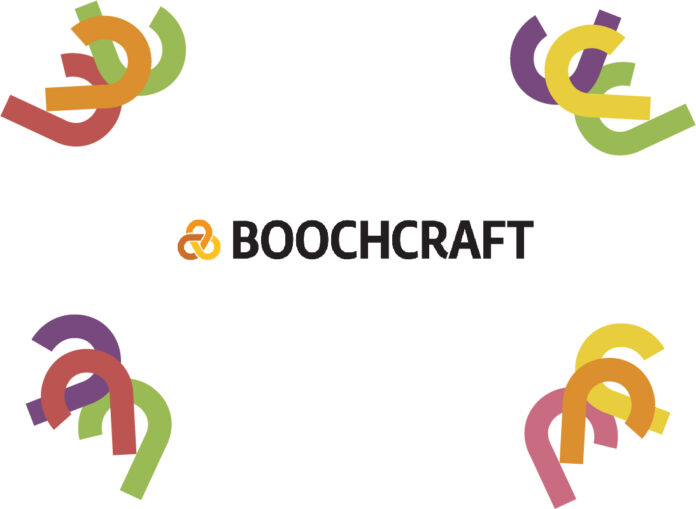A new way to kombucha
Kombucha is a probiotic drink known for its health benefits. Made from a symbiotic culture of bacteria and yeast, it’s naturally fermented and already slightly alcoholic, ranging in an alcohol-by-volume percentage between 0.5 and 2. Recently, brands like California’s “Boochcraft” or “KYLA,” which is sold at Trader Joe’s, have lead to a rise in the popularity of “hard kombucha” which range from 4.5 to 8 percent ABV.
The Boochcraft website boasts, “During the fermentation process, a large amount of probiotic bacteria is produced which fills you guys with healthy bacteria that can improve digestion, inflammation, and even encourage weight loss. Kombucha is also rich in antioxidants and it is thought to protect the liver from toxicity. Its antibacterial properties help to protect the body from bad bacteria and yeasts.” In addition, for those with dietary restrictions, hard kombucha is a gluten-free alternative to beer, and has less sugar than its counterparts.
There have been many examinations, however, into whether kombucha is actually a “healthier” alternative to alcohol. In Tierney Finster’s article, “Is Hard Kombucha a Healthier Way to get Drunk” in Mel Magazine, a dietician from the UCLA Medical Center explained, “As for the healthfulness of some of the other ingredients, we currently live in a world of nutritional reductionism … while traditional kombucha may have some health benefits, including the probiotic and active cultures, there are some studies that indicate that kombucha potentially could harm the liver or kidney, which would be related to the fermentation of the product, possibly because it’s a different type of fermentation/yeast than that found in other products (beer, for example).”
Olivia Blair, a fourth-year human development major, found hard kombucha to be an alcoholic beverage that met her taste preferences.
“I drink it because I’ve always loved non-alcoholic kombucha and Boochcraft is the best of both worlds,” Blair said. “They have so many good flavors and it’s easy to drink it with friends and socially. It’s good for your gut health as well with all those probiotics. I started buying them at the Davis Co-Op. I wasn’t always a big fan of beer, but drinking hard kombucha has helped, and it’s also really gotten me into hard ciders.”
For many, hard kombucha is their drink of choice due to its taste and potential health benefits. For those who enjoy the taste of regular kombucha, hard kombucha has almost no taste difference. While any alcohol consumed in large quantities presents health repercussions, in terms of drinking the serving size, many find themselves feeling less bloated or tired compared to drinking beer.
Ironically, what began as the Alcohol and Tobacco Tax and Trade Bureau regulation of regular kombucha, which stated any drink with 0.5 percent or more must be regulated as an alcoholic beverage, led to many commercial kombucha companies choosing to produce a product with a higher alcoholic option.
Regardless of the debated health benefits, hard kombucha has certainly risen in popularity among UC Davis students. It is now common to look around any place that allows one to bring their own beverage and see people holding a hard kombucha. Often times, the flavors are similar but more mature than regular kombucha. For example, Boochcraft offers “Apple + Lime + Lavender,” “Grape + Coriander + Anise,” “Turmeric + Tangerine + Ginger” and “Grapefruit + Hibiscus + Heather” that appeal to Millenials.
Dani McCabe, a fourth-year economics major, also chooses to drink alcoholic kombucha for its taste.
“I started drinking hard kombucha because I randomly saw it at the Davis Co-Op last year and figured, I love kombucha and hate the taste of alcohol so if alcohol could resemble kombucha in any way maybe I would actually like it,” McCabe said. “I love that I wake up the next morning feeling a lot less lethargic than I would with most alcohols. To me it feels like a cleaner way to consume alcohol while actually loving the taste.”
In addition, McCabe explained her experience at a kombucha brewery in San Diego.
“I love how the crowd at a place like this is not looking to get hammered (like a lot of bars and breweries),” McCabe said. “Instead it’s more laid-back and social because you can taste a lot of flavors and chat with your friends while enjoying an awesome drink that won’t leave you desperately hungover the next morning.”
This trend of alcoholic kombucha is not out of touch with other alcoholic alternatives to beer, such as hard cider and spiked sparkling water. These beverage choices reflect the larger attitudes of health consciousness and consumption that are present among college students and graduates.
That being said, the drink contains fewer sugars, calories and carbs, and most people choose these products for the healthier feeling during and after consumption, as opposed to beer. Without the gluten or high sugar content, beverages such as Boochcraft fall into the realm of other product substitutes like gluten and reduced sugar alternatives.
Quinn Carlsen, a fourth-year economics major who spent his summer working at Lagunitas Brewery, admitted his strong love for hard kombucha after trying it.
“Alcohol and kombucha were meant for each other,” Carlsen said. “Boochcraft didn’t invent the wheel when they put the two together, they just did something everyone else neglected to do. Forget the fact that it’s supposed to be not for heavy beer drinkers like me. Boochcraft is making drinks that are new and different in the alcohol industry, and they deserve respect and I’m not afraid to say I like it.”
At the end of the day, when choosing an alcoholic beverage, what matters is the individual experience and preference, and this new rise in alternatives is creating drinks that appeal to a wider audience.
Written By: Rosie Schwarz – arts@theaggie.org




